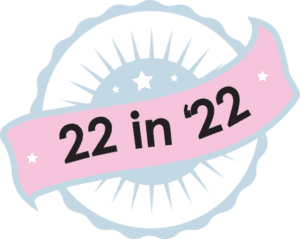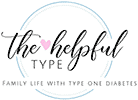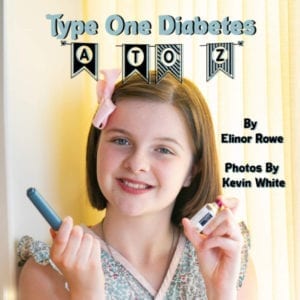
11 Nov 22 Things I Wish I’d Known When I was Newly Diagnosed

22 Things I Wish I’d Known When I was Newly Diagnosed
When Ellie was diagnosed with type one diabetes (T1D) in 2016 at age 8, it was harrowing and heartbreaking. Overwhelming. It felt like our lives had been neatly (yet painfully) divided into a before (diabetes) and after. The latter was daunting.
As Ellie’s six-year diaversary approaches, we’ve talked a lot about her bravery, how far she has come, how the tools and technology for managing T1D have improved, and what she knows now that she didn’t know at the time of diagnosis. This lends itself to a much deeper and lengthier conversation. But, in the meantime, here are some big take aways (in the quick format of our “22 in ’22) …

1
You are not alone.
2
You can do this!
3
You are more than your diabetes. It does not define you.
4
There are more good days than bad.
5
You can still enjoy food. You will be more mindful, but you’ll still have your favorites foods. Pizza and donuts are okay. You’ll learn how to dose for them and add protein to the mix.
6
You can still live a long, happy, fulfilling, and healthy life.
7
With a few adjustments, you can do everything you did before diagnosis.
8
You are brave, strong, and resilient, and these are incredibly important qualities to bring to every aspect of life (not just diabetes care).
9
People may judge because they can’t see symptoms. Ignore them.
10
How much you choose to share about your diagnosis is up to you. You can inform and advocate while you set boundaries. You’ll find the balance that works for you and where you are in life. When you’re newly diagnosed, you may need to share with others how to help you when you’re having a low. The more people around us know about diabetes care, the better able we are to look out for each other. (This applies to so many circumstances beyond diabetes care.)
11
You will learn to listen to your body.
12
All the energy, time, and discipline that it takes to manage diabetes at the start will eventually be channeled into something else of your very own choosing.
13
How it looks in the beginning is not how it will always be.
14
Give yourself grace. You’ll make mistakes. Everyone does. You’ll learn from them. You’ll move on.
15
Think of your BG readings as raw data (not a grade on your report card). Try not to think of numbers as “good” or “bad” scores. Just take the info and use it to know what you need to do next (i.e., have a fast-acting carb to treat a low, give yourself a correction or test for ketones, etc.). When a number isn’t in range, don’t view it as a mistake. It’s an opportunity to figure out what needs to be changed.
16
You will find your people. You probably already have them in your life. A new diagnosis can seem isolating. People may not understand, but don’t shut them out. Friends, extended family, teachers, pastors and youth ministers—they want to help. Let them. Be open to meeting diabuddies, too.
17
Technology can make life easier. There are so many advances in diabetes technology that improve day-to-day management. You’ll find what works for you. Pumps, continuous glucose monitors (CGMs), and closed loop systems lessen some of the burden by calculating insulin doses, alerting you to highs or lows, storing data to help spot trends, adjusting your basal delivery in real time when you’re trending up or down, etc.
18
You’ll learn to count carbs. You’ll become a pro at reading package labels, remembering the carb count of your favorite foods, looking at a plate of food and making a reasonably good estimate of total carbs. You’ll get there. No matter how much technology automates some aspects of care, carb counting is fundamental. You’ll get plenty of practice, and you’ll become good at it.
19
You’ll have a measure of independence. You’ll learn that parents are a phone call away and can help you troubleshoot remotely. You may even have the technology to share your BG on your parents’ smartphones in real time. You will go to friends’ houses, have sleepovers, attend church lock-ins, play laser tag at birthday parties, and more. A little education and planning will go a long way in helping you enjoy the independence you crave while still having a safely net. (Remember #1.)
20
You will learn from your care team. Your endocrinologist, diabetes educator, dietitian, and ophthalmologist will help you. You’ll never stop learning.
21
You’ll never like the taste of orange juice after brushing your teeth. Never.
22
Empathy will be your superpower (responsibility and diligence will also vie for your greatest strength). Diabetes is invisible (unless you let it be seen). It is hard to understand (unless you explain it). Ultimately, you will be more attuned to the challenges people face, and the burdens we all carry.
One of our early blog posts focuses on helping the newly diagnosed: thehelpfultype.com/to-the-newly-diagnosed
A T1D diagnosis can seem like the end of the world. It isn’t. It’s the start of a new way of life, and it is full of promise and possibility.



